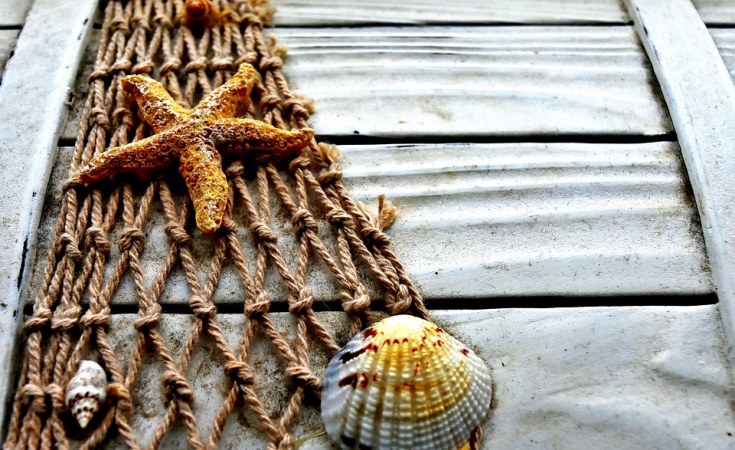Read in
By Eniitan Olorunyomi
Most of the trespassers are Chinese fleets that hamper the activities of artisanal fishers.
Distant water fishing fleets operating along the Gulf of Guinea (West and Central Africa) are exploiting less-developed nations, depleting fish stocks, and affecting the livelihood of artisanal fishers, experts say.
The experts disclosed this at an event held by Hoover Institution on January 25.
The event titled ‘China’s Sharp Power In Africa (Part 2)’ explained how Africa can strike more equitable relationships with its external partners, particularly China.
Agnes Ebo’o, a researcher and an expert on Distant Water Fishing in the region, explained that distant water fishing has contributed to fast depletion of stocks and has affected the livelihoods of small-scale fishers.
She noted that despite contributing largely to the economy, the activities of artisanal fishers have been hampered by Chinese fleets, thereby stunting the growth of the sector.
“Artisanal fishing constitutes a huge percentage of the fisheries economy of the region. Small-scale fishers are complaining about Chinese fleets at the moment and now have to go farther, and at greater depths, to get a reasonable catch,” Ebo’o said.
“Distant water fishing by itself is not illegal and has been practiced for centuries. However, lead fishing companies are trending toward criminality, notably by way of tax fraud, corruption, and other economic crimes associated with Illegal Unreported Unregulated (IUU) fishing.”
She noted in one of her publications that the richer nations are still able to acquire rights to exploit less-developed nations’ resources, and the richer these rich nations become, the more they can practice Distant Water Fishing. Those foreign fleets do not always observe the same rules among less-developed nations as they do at home or in the waters of their rich peers.
“Nevertheless, the Chinese government appears to turn a blind eye toward these practices”, she added.
Another speaker, Mary Goch, director of the Catholic Radio Network, who spoke about the role of the Chinese in the oil sector in South Sudan also stated that it’s the same experience across the natural resource extractives sector.
“There are opaque contracts that people don’t know about, and are not even publicly gazetted for people to read. It is only the politicians who negotiated these agreements with the Chinese that know what is embedded in them. And because of the corruption, they never want it to be open”, she said.
A decade ago, according to a Master’s thesis published by Stockholm Resilience Centre, global Distant Water Fishing fleets came from ten major fishing nations, but today China eclipses them all, particularly in the four countries; Nigeria, Gabon, Cameroon, and the Republic of Congo. However the number of Chinese Distant Water Fishing (DWF) vessels has risen steadily, and most complaints about illegal practices cite them. Today, China leads by a wide margin, with an estimate of over three thousand Distant Water fleets.
Trade policies and subsidies supporting illegal fishing
The World Trade Organization, WTO, is currently undergoing negotiations to cut harmful fisheries subsidies and figure out a way to a more sustainable fisheries trade globally.
These negotiations on fisheries subsidies disciplines have been ongoing for nearly 20 years, and in the past, have encouraged pirate and illegal fishing.
These subsidies can take the form of tax exemptions and infrastructure development loans or grants to practice distant water fishing.
It is the aim of the World Trade Organization negotiations, to curtail subsidies for fishers who engage in Illegal, Unreported, and Unregulated (IUU) fishing.
China tops the list of harmful subsidisers, followed in order of contribution size by Japan, the EU, South Korea, Russia, the U.S., and Thailand, according to a report released in July.
Way forward for West and Central African countries
Firstly, the lack of clearly defined maritime zones weakens the ability of Gulf of Guinea countries to protect their maritime territories and creates loopholes that foreign actors can opportunistically exploit.
In her report, Ebo’o stated that the lack of interest and knowledge in the maritime sector, the weak judiciary, and very low investment in the Gulf of Guinea countries are responsible for the lack of attention paid to the sector. Another reason is the fact that most of the Gulf of Guinea nations are oil-producing and oil-dependent but it will take the interest of the government and investment from international actors to diversify to marine and other resources.
“The G7 countries should invest in the fisheries sector of the Gulf of Guinea. Although the EU has been involved in the region since 2018, they have been more focused on piracy and other crimes. The U.S is also not very visible in the sector but is only focused on security and oil exploration in the region,” Ebo’o stated.
“Patrolling by the navy alone doesn’t help small-scale fishers. It’s not enough to help drive sustainable fisheries. Civil society, media, and community-focused organizations need to know that corruption and economic crime is happening in the fisheries sector”, she said.
Notably, sanctions for contravening international or national laws on overfishing or economic crimes in the fishing sector, including tax evasion or corruption, are often limited to administrative penalties. The Gulf of Guinea region is responsible for the sustainable use and exploitation of the marine resources in their maritime spaces.
At the same time, the fight against Illegal Unreported Unregulated fishing is a global responsibility for all nations.



